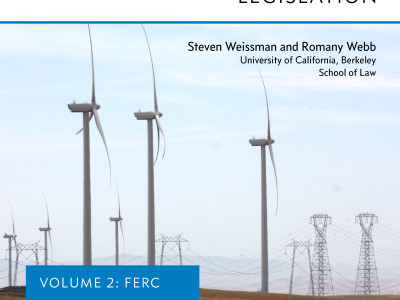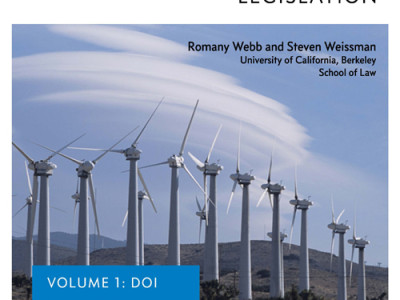greenhouse gas
I Suppose We Can Just Hope That EIA Is Wrong
The federal estimate of energy-related carbon emissions in 2050 should get our attention.
The U.S. Department of Energy’s Energy Information Administration (EIA) issues projections for future energy use across all sectors of society. They aren’t really predictions of our energy future — they are more like conversation starters. In fact, some researchers suggest that EIA shows a consistent bias by forecasting more energy use than actually occurs. Yet, …
Continue reading “I Suppose We Can Just Hope That EIA Is Wrong”
CONTINUE READINGContinuing Efforts to Put a Price on Carbon
New York regulators and transmission operators consider a carbon adder for wholesale electricity.
The New York Independent System Operator (NYISO) operates the state’s electric grid and conducts wholesale power markets. The New York Department of Public Service regulates the state’s investor-owned electricity providers. Together, they have issued a report concluding that the state, ratepayers, and the environment would benefit from placing a charge on wholesale electric power to …
Continue reading “Continuing Efforts to Put a Price on Carbon”
CONTINUE READINGThe Federal Energy Regulatory Commission Can Do a Lot to Reduce Greenhouse Gas
A new report shows that FERC has extensive power to address climate change.
The U.S. Environmental Protection Agency (EPA) has captured the attention of the energy world with its proposed regulations to reduce greenhouse gas emissions from existing power plants – and for good reason. The EPA’s authority is broad and its resolve to address climate change is evident. But other federal agencies are in a position to …
Continue reading “The Federal Energy Regulatory Commission Can Do a Lot to Reduce Greenhouse Gas”
CONTINUE READINGAddressing Climate Change Without Legislation
A new report from UC Berkeley looks at the underused powers of the US Department of the Interior.
Now that the Environmental Protection Agency has announced its proposed rules for restricting greenhouse gas emissions from existing power plants, the climate focus of EPA and the states will first be on polishing the rules for final approval, then on the anticipated law suits, and then on the development of state plans to meet the …
Continue reading “Addressing Climate Change Without Legislation”
CONTINUE READINGGuest Blogger Kate Konschnik: EPA’s 111(d) Authority – Follow Homer and Avoid the Sirens
Kate Konschnik is the Director of Harvard Law School’s Environmental Policy Initiative. The views expressed in this blog post are her own. Thirty years ago, Chevron v. NRDC set the standard for judicial deference to an agency’s statutory interpretation. In that case, the Supreme Court upheld EPA’s interpretation of Clean Air Act language. This month, …
CONTINUE READINGGuest Blogger Ken Alex: State of the State
Ken Alex is a Senior Advisor to Governor Jerry Brown and the Director of the Governor’s Office of Planning and Research. The views expressed in this blog post are his own. Thanks to Legal Planet, the UCLA Law Emmett Center and Environmental Law Center, and Berkeley Law Center on Law, Energy, and the Environment for …
Continue reading “Guest Blogger Ken Alex: State of the State”
CONTINUE READINGThe Current U.S. Energy Pathway is Paved with Coal, Oil and Natural Gas
How well are we doing, in our efforts to strip fossil fuels from our energy mix? If you want to believe the most recent estimates from the U.S. Energy Information Administration (EIA), the answer is: not so well. As EIA prepares its 2013 report on the impact of various proposed policy changes, it asks itself: …
Continue reading “The Current U.S. Energy Pathway is Paved with Coal, Oil and Natural Gas”
CONTINUE READINGNew journal issue on using the Clean Air Act to address greenhouse gas emissions
UCLA’s Journal of Environmental Law and Policy has just published its current issue, Volume 30, with all its content available free online in pdf format. This volume is a special symposium issue, featuring articles relating to the use of the Clean Air Act to address greenhouse gas emissions. Several of the articles’ authors were speakers …
Continue reading “New journal issue on using the Clean Air Act to address greenhouse gas emissions”
CONTINUE READINGThe recent court decision blocking California’s scoping plan to reduce greenhouse gas emissions: One-stop shopping for recent Legal Planet commentary
Several of the bloggers on Legal Planet have been commenting extensively on the recent California court decision that will block the California Air Resources Board from moving forward with its AB 32 Scoping Plan and related regulations. I’ve provided links below to a series of our posts on this decision. The court, ruling on a …
CONTINUE READINGMight recent events allow Governor Brown to consider a new direction for AB 32 implementation?
My colleague Jonathan Zasloff suggests that environmental justice groups are using litigation to try to get leverage for some sort of compensation or other measures, rather than to actually stop the state’s cap-and-trade program for greenhouse gases. I doubt that. But what I do wonder — with no evidence, but I can speculate wildly on …
CONTINUE READING





